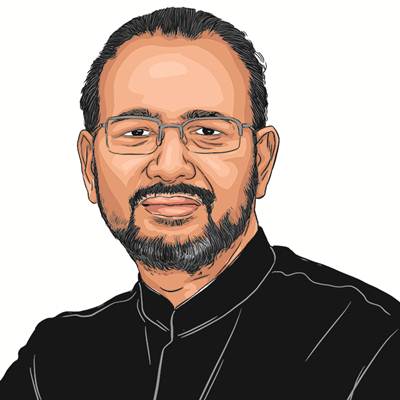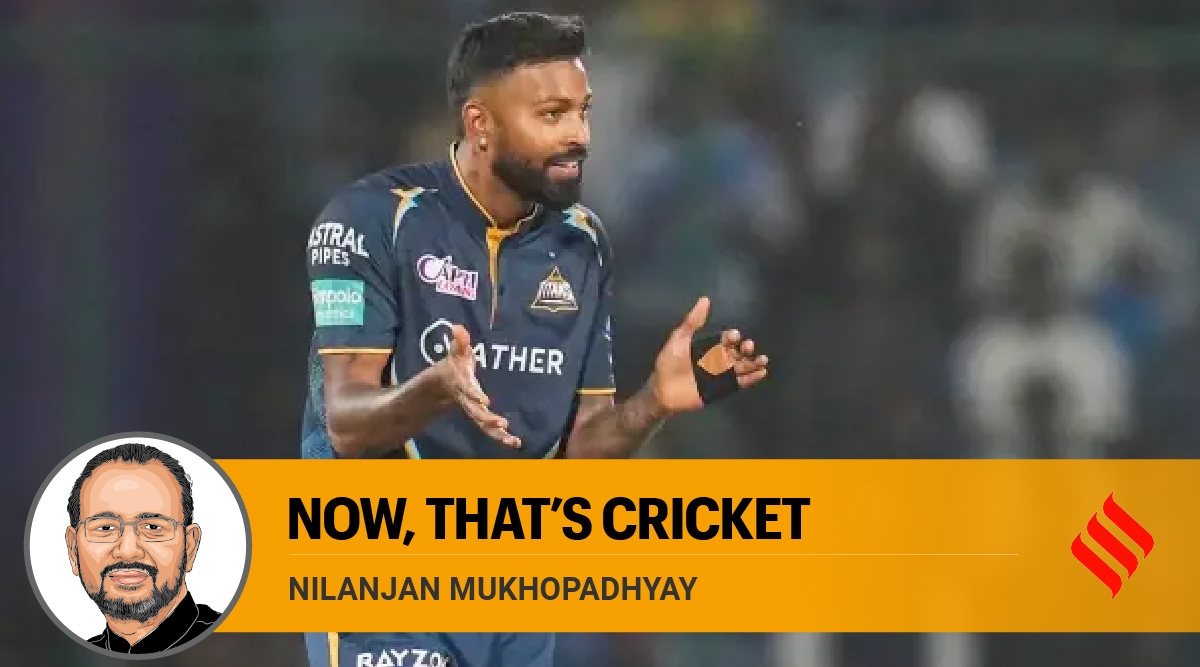The cricketer Hardik Pandya recently cited “ethics” to rule himself out of the race for a slot in the Indian team for the World Test Championship final in June at The Oval. With the Indian team qualifying, given Pandya’s creditable record in Tests in England, and Team India’s search for balance through a fast-bowling all-rounder, a scribe asked if he saw himself in the squad.
His “no” was not layered with cricketing considerations or whether his lower back could now endure the gruelling rigour of Test cricket. Instead, his rationale in the non-affirmative reply was straightforwardly principled: It would be unethical to stake claim to a position in the team because he is yet to “earn” the right for a recall to the Indian Test side.
His reasoning left no doubt that while being considered by selectors was his right, in his mind, this was not ethically and morally right: “I am ethically a very strong person. I haven’t done 10 per cent to reach there. I am not even a part of 1 per cent. So, coming there and taking someone’s place will ethically not go well. If I want to play Test cricket, I’ll go through the grind and earn my spot.”
Pandya’s teammate Ravichandran Ashwin complimented his stand and said that the hat must be doffed for making a “proper statement” not just to the world of cricket, but to the entire world. Ethics is now conspicuous by its near-absolute absence, in cricket and almost every walk of life, for reasons of pragmatism.
Practices of “walking” and “recalling” are becoming rarer with every passing match. More advanced technology, the presence of a Third Umpire, despite which errors are made or left to “umpire’s call” has led to batsmen staying put even when knowing they either nicked the ball, were plumb in front of the stumps, or short of it while making the final lunge into the crease. The reasoning is that these deceptions get evened out by errors that, at times, go against them. Winning in every arena — sporting fields, street squabbles, corporate battles and political contests – has become more important than being guided by a moral code. A “killer instinct” is what everybody seeks to hone.
But leave Pandya out for a moment. When was the last time you heard anyone in India, take a decision, or rule herself or himself out of reckoning from a piece of the pie, on ethical grounds? When did you last hear applause for a person who tried looking at the world, Atticus-like (from To Kill a Mockingbird) “while standing in another person’s shoes?”
The academic and political theorist Rajeev Bhargava begins the introduction of his latest book, Between Hope and Despair: 100 Ethical Reflections on Contemporary India, a collection of short essays written for a newspaper, with a profound statement: “India’s collective ethical identity is under duress.”
But, did we ever have a shared ethical identity? Independent India emerged from the immoral imposition of colonialism by the British. India’s leaders chose a political system about which there was scepticism from around the world. Consequently, its people united under a set of ethical principles, ordained by the Constitution and societal consensus.
This was particularly necessary because Partition’s wounds had to be healed. The task was exacting because inter-community hostility is driven not exclusively by hatred and prejudice for the other, but also by the stated objective of good for one’s own. Barring periodic ruptures, people overcame civilisational bitterness and “adjusted” with one another. They put a veil over the craving for unethical or immoral action against the “other”, despite the nation being blemished by religious, regional, caste, and economic faultlines.
Over the past few decades, this sense of ethical correctness has been replaced by an antagonistic collective (un)ethical identity. More often than not, this is unsheathed against the “other” — although they too comprise the Indian citizenry.
Humans desire material objects and control/power over others. Ethically, while securing these, their inner beacon should be pointed at what is right or wrong, as Pandya’s was.
The unquenchable craving to win or to retain one’s position at all costs has corroded the collective ethical framework. The names of Mahatma Gandhi, Swami Vekananda, Maulana Azad and Babasaheb Ambedkar are chanted merely like shlokas or other religious texts without appreciating the sense of these words.
Competition in every sphere has become unscrupulous. If Pandya acted “normally”, his reply would have been: “Yes, I would like to be considered for a slot on the Team to The Oval. I have recovered from the injury and have proved my abilities.”
Fortunately, he did not. India requires many more to line up and share Pandya’s ethical identity. If an ethical cricketing Indian can remain firm on his principles, put injury behind and await his turn, can’t the nation emulate him?
The writer is a NCR-based author and journalist. His latest book is The Demolition and the Verdict: Ayodhya and the Project to Reconfigure India. He has also written The RSS: Icons of the Indian Right and Narendra Modi: The Man, The Times

 Nilanjan MukhopadhyayThe writer is an NCR-based author and journalist. His latest book is T… read more
Nilanjan MukhopadhyayThe writer is an NCR-based author and journalist. His latest book is T… read more

In Good Faith: Winning isn’t all, Hardik Pandya sets an ethical example – The Indian Express
by
Tags:
Leave a Reply